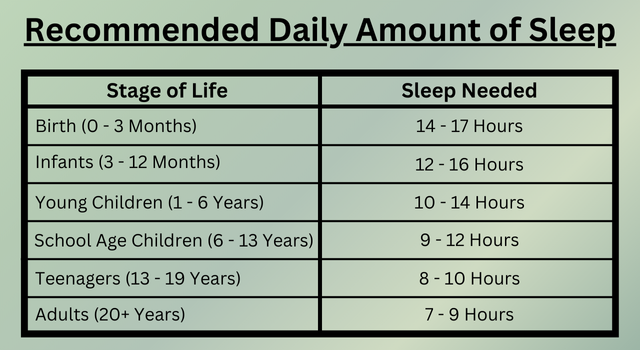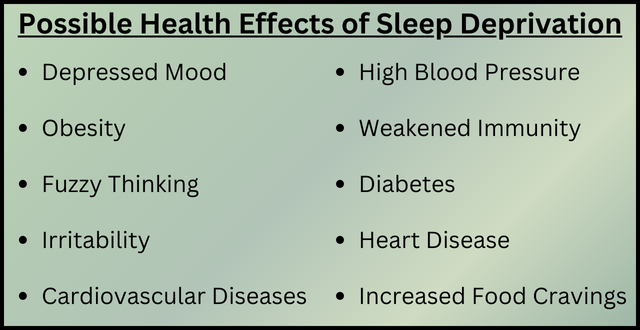Medically Reviewed by Lucas Rosa, PhD in Molecular Biology
Sleep deprivation can wreak havoc on your hormonal balance and lead to numerous health issues.

The Science Behind Sleep and Hormones
Sleep is a critical time for our bodies. During sleep, the body undergoes many restorative processes, including the regulation of hormones. Hormones such as cortisol, melatonin, and growth hormone are particularly influenced by sleep.
Sleep is an important time when various hormones are released in our bodies. For example, during deep sleep, the body releases growth hormone, which is essential for tissue repair and muscle growth.
Melatonin and cortisol help regulate sleep-wake cycles and they follow a daily rhythm that can be disrupted by consistently having poor sleep.

What Is Sleep Deprivation?
Sleep deprivation is when your body is not getting enough sleep. This could be not enough time sleeping or not enough good quality sleep.
Short-term sleep deprivation is usually not a problem, but long-term sleep deprivation can lead to many health issues and complications.
Symptoms of sleep deprivation can include daytime sleepiness, fatigue, irritability, slowed reaction time, headaches, and a hard time focusing.

Common Hormonal Imbalances Due Sleep Deprivation
Sleep deprivation can lead to a wide range of hormonal imbalances which can cause a variety of health challenges. The effects of being hormonally imbalanced can be seen after the first night of being sleep deprived, and it progressively worsens the longer you are sleep deprived.
These are the hormones that are commonly imbalanced due to a lack of sleep:
Insulin
Insulin helps regulate our blood sugar levels and sleep deprivation has a significant association with insulin resistance, which is when your body does not respond to insulin properly. This disruption can lead to high blood sugar levels and an increased risk of diabetes.
Hunger Hormones
Sleep deprivation can affect leptin and ghrelin, the hormones that regulate hunger and fullness after eating, leading to an increased risk of weight gain and obesity. A lack of sleep disturbs the balance of our hunger hormones causing us to feel hungrier during the day.
Thyroid Hormones
The thyroid regulates how the body uses energy. A lack of sleep can interfere with our thyroid hormones and affect metabolism, the process our body uses to turn the foods and drinks we consume into energy. This can lead to low energy levels, weight gain, and high blood pressure.
Growth Hormones
Our growth hormones are usually released when we sleep, so a lack of sleep will hinder the release of growth hormones which can lead to stunted height, decreased muscle mass, and weight gain. One night of sleep deprivation won’t stunt a person’s growth, but long periods of sleep deprivation can.
Cortisol
Cortisol is the body’s primary stress hormone, and it helps control the sleep-wake cycle by typically peaking early in the morning and declining throughout the day. However, sleep deprivation can cause elevated cortisol levels at inappropriate times which can lead to chronic stress and increased anxiety.
Melatonin
Melatonin helps regulate our circadian rhythm which is our body’s natural 24-hour clock. This rhythm helps our body stay on a healthy sleep-wake cycle, and sleep deprivation disrupts this rhythm leading to a lack of energy, digestion issues, and a weakened immune system.
Sex Hormones
Sleep deprivation can significantly influence our sex hormones which help regulate fertility and reproduction.
In those assigned female at birth, sleep deprivation can disrupt estrogen levels, leading to menstrual disruptions and fertility issues.
In those assigned male at birth, a lack of sleep can lower testosterone levels, affecting libido and overall reproductive health.
Both men and women may experience reduced sexual satisfaction and intimacy issues as a result of hormonal imbalances caused by poor sleep.

Tips to Improve Sleep
Having good sleep is essential for hormonal balance, and there are practical steps you can take towards improving both sleep and hormone health.
Here are some tips to help you improve your sleep:
- Have a consistent sleep schedule
- Create a relaxing bedtime routine
- Reduce exposure to screens before bed
- Healthily manage stress
- Exercise regularly
- Make a comfortable sleep environment
- Avoid heavy meals close to bedtime
- Avoid highly emotional activities before bed
- Listen to calming music

Conclusion
Sleep is essential for hormonal balance and overall health. Chronic sleep deprivation can lead to various hormonal imbalances, affecting everything from stress levels to reproductive health.
By prioritizing good sleep habits and taking practical steps to improve sleep quality, you can help restore hormonal balance and promote long-term wellbeing.
Sources:
Better Health Channel. “Sleep Deprivation.” Better Health Channel, 30 June 2014, www.betterhealth.vic.gov.au/health/conditionsandtreatments/sleep-deprivation.
Cleveland Clinic. “Sleep Deprivation: What It Is, Symptoms, Treatment & Stages.” Cleveland Clinic, 11 Aug. 2022, https://my.clevelandclinic.org/health/diseases/23970-sleep-deprivation.
Cleveland Clinic. “What Is Circadian Rhythm?” Cleveland Clinic, 15 Mar. 2024, https://my.clevelandclinic.org/health/articles/circadian-rhythm.
Colten, Harvey R, and Bruce M Altevogt. “Extent and Health Consequences of Chronic Sleep Loss and Sleep Disorders.” National Institute of Health, National Academies Press (US), 2019, www.ncbi.nlm.nih.gov/books/NBK19961/.
Dowshen, Steven. “Can Lack of Sleep Stunt Your Growth? (for Teens) – KidsHealth.” KidsHealth, 2017, www.kidshealth.org/en/teens/sleep-growth.html.
Finan, Patrick. “The Effects of Sleep Deprivation.” Johns Hopkins Medicine, 2019, www.hopkinsmedicine.org/health/wellness-and-prevention/the-effects-of-sleep-deprivation.
Kim, Tae Won, et al. “The Impact of Sleep and Circadian Disturbance on Hormones and Metabolism.” International Journal of Endocrinology, vol. 2015, no. 591729, 2015, pp. 1–9, www.ncbi.nlm.nih.gov/pmc/articles/PMC4377487/, https://doi.org/10.1155/2015/591729.
Pacheco, Danielle. “Could Your Thyroid Be Causing Sleep Problems?” Sleep Foundation, 8 Mar. 2024, www.sleepfoundation.org/physical-health/thyroid-issues-and-sleep.
Pacheco, Danielle, and David Rosen. “Bedtime Routines for Adults.” Sleep Foundation, 8 Dec. 2023, www.sleepfoundation.org/sleep-hygiene/bedtime-routine-for-adults.
Pacheco, Danielle, and Abhinav Singh. “How a Lack of Sleep May Increase Calorie Consumption.” Sleep Foundation, 11 Dec. 2020, www.sleepfoundation.org/sleep-deprivation/lack-sleep-may-increase-calorie-consumption.
Singh, Trisha, et al. “Does Insufficient Sleep Increase the Risk of Developing Insulin Resistance: A Systematic Review.” Cureus, 26 Mar. 2022, https://pmc.ncbi.nlm.nih.gov/articles/PMC9036496/#sec3, https://doi.org/10.7759/cureus.23501.
Stachel, Jordan. “Melatonin Deficiency: Common Symptoms & Causes | Everlywell.” Everlywell, 2019, www.everlywell.com/blog/sleep-and-stress/what-is-melatonin-deficiency/?srsltid=AfmBOopdU_yd4PxkMtmJdY3O_-_HwwTgYYdGcpGWdEE_-SnOUwitJanz.
Featured Photo by Kaboompics.com: https://www.pexels.com/photo/a-man-sitting-at-the-table-5717792/
Check Out
HF Swaps
Better products for better hormone health.









